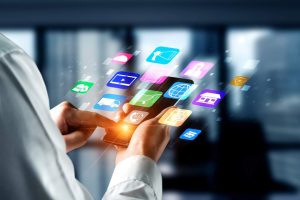In the Spanish B2B business landscape, more than 50% of companies are expected to increase their investment in digital marketing by 2024. This shift reflects the growing relevance of online strategies in a sector that seeks to adapt to global trends and increase its competitiveness. Companies are recognizing the importance of digital to improve visibility, optimize customer relationships and generate sustainable sales.
What is driving this change?
Digital transformation has reached the heart of B2B companies’ business strategies. The expansion of eCommerce B2B and changing consumer expectations have motivated companies to invest more in digital marketing. B2B users are looking for more personalized and convenient solutions, driving companies to improve their online presence, from search engine visibility to user experience on their platforms.
The impact of eCommerce on B2B marketing
The B2B eCommerce is not only a growing trend, but has become a strategic pillar for companies wishing to compete globally. Online marketing facilitates greater audience segmentation and allows companies to reach their customers more efficiently. Platforms such as Magento, Shopify or PrestaShop, combined with specialized ERP, have allowed companies to streamline their operations and improve their sales channels.
Main Sectors in B2B Digitalization
Among the sectors that are leading the digital transformation in B2B marketing are. food, consumer electronics y fashion. Estos sectores han sido pioneros en la adopción de herramientas digitales para optimizar tanto la gestión de la cadena de suministro como la venta online.
The food sectorIn particular, the food industry has experienced exponential growth in the adoption of digital platforms, as it has become increasingly dependent on the efficiency and speed of logistics processes.
Food, a key sector in digitalization
In the food industry, the ability to adapt to digital channels is critical. This sector has seen how online commerce can streamline processes that have traditionally been slower, from order management to logistics. Food companies are using tools such as the Big Data and artificial intelligence (AI) to predict demand trends and manage inventories more efficiently.
Logistics and Parcels: Key Challenges in B2B
One of the main challenges facing B2B companies in their digital growth is logistics. The need to meet customer expectations in terms of speed and reliability has led to an increase in investments in more efficient logistics solutions. Las empresas B2B no solo deben gestionar grandes volúmenes de pedidos, sino también hacerlo de manera rápida y a menudo a nivel internacional.
This is where ERP solutions come into play, integrating the different areas of the business, improving inventory management and optimizing logistics processes. Companies that manage to automate these processes are better positioned to deliver a quality customer experience.
The importance of ERP in B2B logistics
A ERP (Enterprise Resource Planning) acts as a company’s central nervous system, connecting the different business functions, from manufacturing to accounting, into a single integrated system. In the context of B2B eCommerce, an ERP enables companies to manage orders in real time, accurately control inventories and optimize shipping routes. This not only reduces logistics costs, but also significantly improves delivery times.










